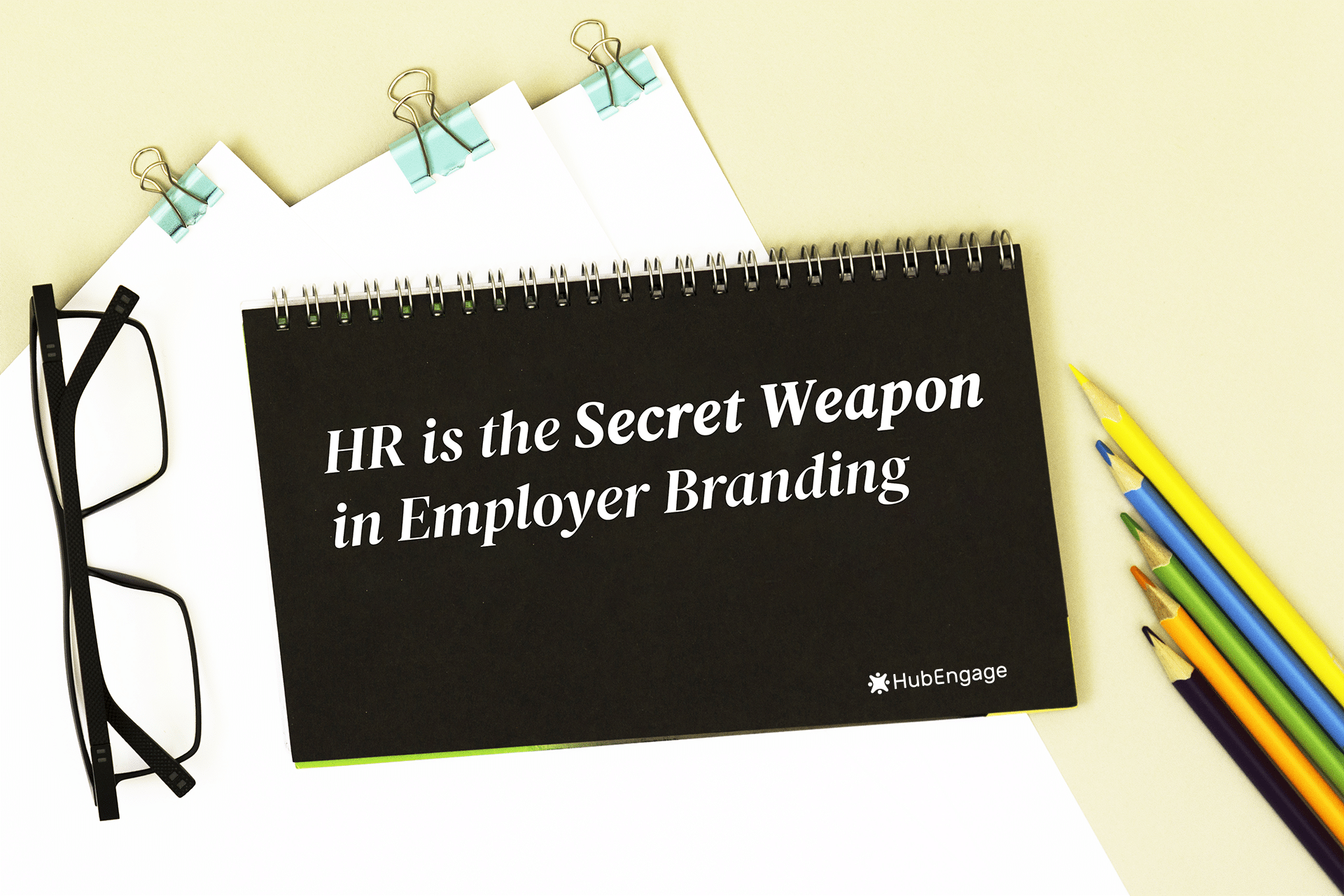Have you ever wondered why some companies are magnets for top talent while others struggle to fill positions? The secret often lies in a well-crafted employer brand.
When it comes to building a company’s reputation, it’s easy to overlook the true heroes behind the scenes—HR professionals. Indeed, HR is the secret weapon in employer branding, and their influence is both profound and far-reaching. In this blog, we’ll delve into the critical role HR plays in employer branding, explore why it’s essential, and uncover the challenges faced when a company neglects its brand. Additionally, we’ll discuss practical strategies HR can employ to enhance employer branding and highlight how HR professionals can thrive through effective branding.

What is Employer Branding?
Employer branding refers to a company’s reputation as an employer and its value proposition to employees. In other words, it’s how the organization is perceived by potential, current, and past employees. This perception is shaped by various factors, including company culture, employee benefits, career development opportunities, and overall work environment. Essentially, employer branding is the image a company projects as a place to work.
Why is Employer Branding Important?
Attracting Top Talent
Firstly, a strong employer brand attracts top talent. In today’s competitive job market, highly skilled professionals have numerous options. They are more likely to choose companies that have a positive reputation, offer excellent work-life balance, and provide opportunities for growth. For instance, consider the tech giants like Google and Apple. Their strong employer brands attract thousands of applicants annually.
Retaining Quality Employees
Moreover, employer branding plays a pivotal role in employee retention. When employees feel valued and proud to be associated with their company, they are less likely to seek opportunities elsewhere. This reduces turnover rates and the costs associated with recruiting and training new employees.
Enhancing Employee Engagement
In addition, a strong employer brand enhances employee engagement. Engaged employees are more productive, innovative, and motivated. They are also more likely to become brand ambassadors, promoting the company through word-of-mouth and social media.
Problems Faced Without Employer Branding
Struggling to Attract Talent
Without a strong employer brand, companies may struggle to attract high-calibre talent. Potential candidates may be hesitant to apply if they are unsure about the company’s culture or values. This can lead to a talent gap, affecting the company’s performance and growth.
High Employee Turnover
Additionally, companies with poor employer branding often experience high employee turnover. When employees don’t feel connected to the company or don’t see a clear career path, they are more likely to leave. This not only disrupts operations but also incurs significant costs related to recruitment and training.
Low Employee Morale and Engagement
Furthermore, lack of employer branding can lead to low employee morale and engagement. Employees may feel undervalued and disconnected, leading to decreased productivity and increased absenteeism.
How HR Can Contribute to Employer Branding
Developing a Strong Company Culture
Firstly, HR can cultivate a strong company culture. This involves creating a positive work environment where employees feel valued, respected, and motivated. HR can organize team-building activities, promote open communication, and recognize employee achievements.
Offering Competitive Benefits and Compensation
Secondly, HR can ensure that the company offers competitive benefits and compensation packages. This includes not only salary but also health benefits, retirement plans, and other perks such as flexible working hours and remote work options.
Providing Career Development Opportunities
HR can also focus on career development. This involves offering training programs, mentorship opportunities, and clear career progression paths. Employees who see a future with the company are more likely to stay and contribute to its success.
Leveraging Social Media
Moreover, HR can leverage social media to enhance employer branding. By sharing positive stories, employee testimonials, and company achievements on platforms like LinkedIn, Facebook, and Instagram, HR can create a positive image of the company.
Engaging in Corporate Social Responsibility (CSR)
Engaging in CSR activities can also boost employer branding. Companies that give back to the community are viewed more favorably by potential and current employees. HR can organize volunteer programs and support charitable initiatives.
Conducting Employee Surveys
Conducting regular employee surveys is another effective strategy. These surveys can provide insights into employee satisfaction and areas for improvement. Acting on this feedback shows employees that their opinions are valued, further enhancing the employer brand.
How HRs Can Grow with the Help of Employer Branding
Becoming Strategic Leaders
Effective employer branding positions HR professionals as strategic leaders within the organization. By demonstrating the impact of a strong employer brand on recruitment, retention, and overall company performance, HR can secure a seat at the executive table.
Enhancing HR Skills
Employer branding initiatives require a diverse skill set, including marketing, communication, and data analysis. By spearheading these efforts, HR professionals can enhance their skills and broaden their expertise, making them more valuable assets to the company.
Building a Strong Network
Moreover, successful employer branding often involves collaboration with other departments, such as marketing and communications. This cross-functional teamwork allows HR professionals to build strong networks within the organization, facilitating career growth and opportunities for advancement.
Boosting Job Satisfaction
Finally, being at the forefront of employer branding can significantly boost job satisfaction for HR professionals. Seeing the tangible impact of their efforts on the company’s reputation and employee satisfaction can be incredibly rewarding.
Funny Insights on Employer Branding
The “Perks” that Perk Up
Imagine an HR team that decided to install a popcorn machine in the office. At first, it was just a quirky idea, but soon, the aroma of fresh popcorn became synonymous with the office’s lively culture. Employees started calling it the “Popcorn Perk,” and it became a symbol of the fun, relaxed work environment. This little touch of whimsy significantly boosted employee morale and engagement.
Casual Fridays Gone Wild
Another example involves a company that introduced “Casual Fridays.” Initially, it was meant for employees to dress down and feel more comfortable. However, it soon evolved into “Costume Fridays,” with employees coming to work in hilarious outfits. This tradition not only brought laughter and joy to the workplace but also became a unique aspect of the company’s employer brand, making it a place where creativity and fun were encouraged.
Final Thoughts
In conclusion, HR is undeniably the secret weapon in employer branding. In the end, HR is key to making a company a great place to work. Their work in creating a positive image and a welcoming environment is what makes a company stand out. In today’s job market, the role of HR in building a strong employer brand is more important than ever. By focusing on this, HR not only improves the company’s reputation but also helps it grow and succeed. So, when you think about what makes your company special, remember—it’s the HR team. They are the ones building the brand and attracting top talent. Investing in employer branding isn’t just smart; it’s essential for creating a happy, thriving workplace.
Explore a few links to learn more about Employer Branding
Creating an Effective Employer Brand Strategy
7 Employer Branding Examples to Inspire Your Business
Employer Branding: What It Is and Why It Matters – Forbes
What is Employer Branding? – LinkedIn













